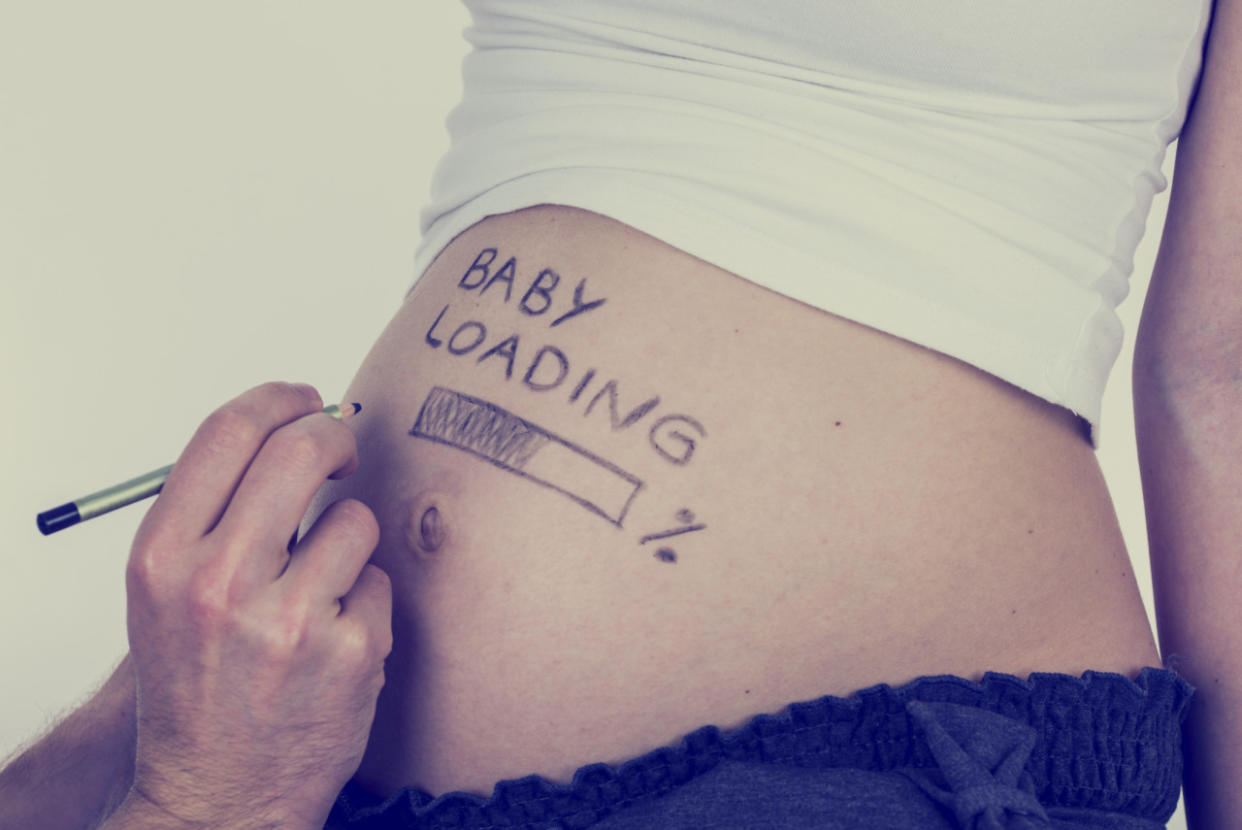Why you should be wary of online fertility forums

My partner and I spent a long time trying conceive our first child, and an even longer time working towards a second baby – so long that it’s statistically unlikely there will be a second baby. Like any modern couple, our efforts in the bedroom were augmented by the Internet – but not in a sexy way.
While we were TTC (or, trying to conceive), my obsessive internet searches were filled with questions like, “signs of pregnancy at nine days past ovulation,” “bloated and tired at 11 days past ovulation,” or simply, “am I pregnant?” These often led me to a variety of online fertility forums including TwoWeekWait.com, so named for the two-week eternity between a woman’s ovulation and the day she gets her period – or a positive pregnancy test.
In the beginning, I was fairly dismissive of these forums. There were the hokey acronyms, like DH for “dear husband,“ and slang terms like “baby dust” (a wish for good luck conceiving) and “angel baby" (used to describe miscarried pregnancies) that put me right off. But, as my struggle to get pregnant morphed into full on infertility, I started visiting them regularly, obsessing over the minutiae of other women’s early pregnancy symptoms and wondering if they were mine, too.
Kristen Burris, L.Ac, is an infertility specialist who uses acupuncture, herbal medicine and traditional Chinese medicine to support natural fertility. She also augments treatments for patients undergoing IVF (in vitro fertilization) and IUI (intrauterine insemination). She says stories like mine are all too common, and that the majority – if not all – of her patients have come down with “Google syndrome.”
“The harrowing result of these seemingly beneficial support systems is that they’re not moderated by professionals,” she says. “You go from one moment of someone on the forum asking for medical advice about their menstrual cycle to the next person diving in with a photograph of an ultrasound, and ‘Yay, I’m pregnant!’”
For a woman who’s experienced miscarriages or infertility, the emotional effects can be devastating. Burris also worries about the spread of inappropriate medical advice.
ALSO SEE: Should Celebrities Come Clean About Infertility?
Natasha Marchand of Toronto has also struggled with infertility, and like me, she’s fallen down a few Internet rabbit holes herself.
“I found it made everything harder, to be on this side of the fence and watch people jump to the other side,” she says. “I got to know other people, and then they would get pregnant and they would be gone.”
Marchand, who runs bebomia.com, had the additional emotional challenge of moderating a training blog for birth doulas. She likens what happens online to the real life pain of getting a baby shower invitation while you’re struggling to conceive.
Unmoderated TTC forums are a breeding ground for shady medical advice and emotional triggers, but their founding principle – that sharing a difficult experience is helpful – holds true.
Instead of hitting the Internet, Burris suggests joining a moderated real-time support group or visiting a therapist who specializes in infertility. She also advises seeing an acupuncturist, herbalist or naturopath. A key component of natural medicine involves listening, and while you may still need to visit a reproductive endocrinologist, natural practitioners are likelier to spend more time helping you process your feelings, says Burris. For best results, choose one who specializes in infertility.
Marchand agrees that therapists, or therapist-moderated support groups are helpful. She also recommends yoga. “Yoga isn’t going to make or break a medical condition,” she says, but hip openers will get blood flowing to the reproductive regions, and breathing exercises will cultivate calm and encourage self-kindness. Fertility yoga classes are great, says Marchand – who is also a yoga instructor – but any gentle class will do. If you can’t find a class in your area, Marchand recommends checking out Yoga Goddess.
Whatever you do, know that you’re not alone. Infertility affects up to one in six couples, and there are resources to help.
Here is a selection of books Kristen Burris L.Ac recommends to her patients:
Girlfriend to Girlfriend A Fertility Companion By Kristen Magnacca Darcy
Love and Infertility: Survival Strategies for Balancing Infertility, Marriage and Life By Kristen Magnacca Darcy
Inconceivable A Woman’s Triumph Over Despair and Statistics By Julia Indichova (Best for Secondary Infertility)
Waiting for Daisy By Peggy Orenstein
Unsung Lullabies By Janet Jaffe, PhD, Martha and David Diamond, PhD.
Silent Sorority- A (Barren) woman gets busy, angry, lost and found By Pamela Tsidgdinos
Life Can Be Hard Sometimes But It’s Going to Be Okay Collection of Poems By Susan Schultz
After Miscarriage Medical Facts and Emotional Support for Pregnancy Loss By Krissi Danielsson
Everything Happens for a Reason By Mira Kirshenbaum
The Red Tent By Anita Diamant
The Light BetweenOceans By ML Stedman

